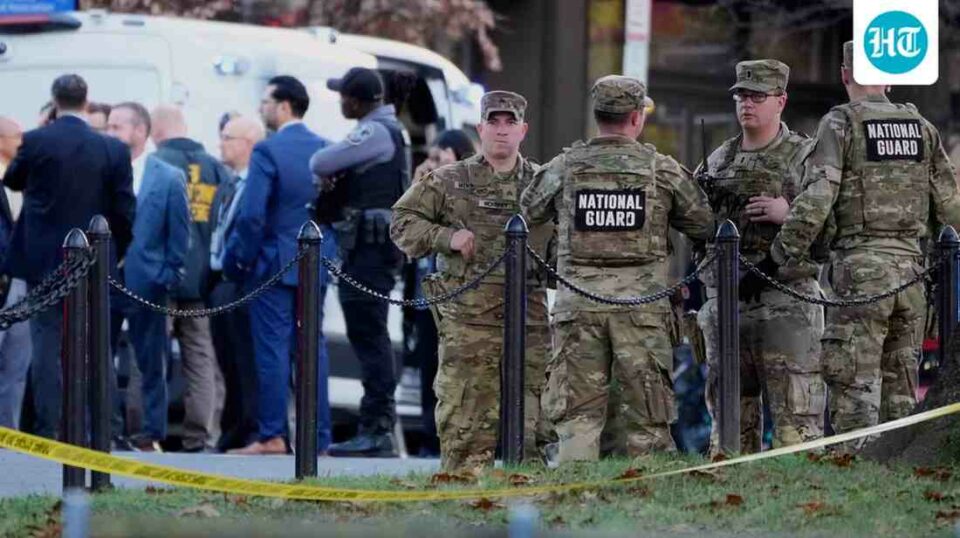U.S. Launches Sweeping Green Card Review for 19 Nations After DC National Guard Shooting
In a dramatic policy shift triggered by a deadly attack in the nation’s capital, the U.S. government has ordered a comprehensive, full-scale review of all Green Cards issued to immigrants from 19 designated “countries of concern.” This sweeping directive from U.S. Citizenship and Immigration Services (USCIS) marks one of the most significant immigration security actions in recent years, directly linking national security policy to a specific violent act.
The Triggering Event: A Deadly Ambush in Washington D.C.
The policy was catalyzed by a November 26, 2025, ambush-style shooting near the White House that targeted members of the District of Columbia National Guard. The attack resulted in the death of Servicemember Sarah Beckstrom and critical injuries to Servicemember Andrew Wolfe.
The suspect, identified as a 29-year-old Afghan national, was reportedly resettled in the U.S. under the 2021 Afghan refugee program following the withdrawal of American troops. Authorities believe he had prior paramilitary ties in Afghanistan. The suspect was wounded and arrested at the scene.
The Administration’s Response: A “Rigorous Reexamination”
In a swift and decisive response, the administration announced a top-to-bottom reassessment of the U.S. immigration vetting process. USCIS Director Joseph Edlow stated the directive came directly from the President, framing it as a necessary corrective to what officials termed “reckless resettlement policies” of the previous administration.
“The safety and security of the American people is our highest priority,” Edlow stated, emphasizing that the review would be “full-scale and rigorous.”
Scope and Impact: Who is Affected by the Green Card Review?
The review casts a wide net, affecting a significant number of immigrants. The policy applies to:
-
Existing Green Card Holders: Lawful permanent residents from the 19 countries who have already been granted status may now have their files re-opened and their backgrounds re-checked.
-
New and Pending Applications: Any current or future applicant from these nations will face intensified scrutiny.
The list of “countries of concern” includes Afghanistan, Iran, Somalia, Yemen, and Venezuela, among others, mirroring nations previously flagged in travel restriction proclamations. Officials confirmed that immigration officers will now give greater weight to “country-specific negative factors” during adjudication, effectively making national origin a primary trigger for enhanced vetting.
As an immediate measure, the administration has paused all new immigration requests from Afghan nationals.
Broader Overhaul: Asylum and Refugee Admissions Under the Microscope
The review extends beyond Green Cards, signaling a broader overhaul of U.S. humanitarian programs. The directive includes a re-assessment of asylum and refugee admissions approved under the previous administration of President Joe Biden. Special review teams are now tasked with re-examining hundreds of thousands of case files to reassess eligibility and the integrity of the original vetting.
In a related development, the government is also reportedly considering the deportation of the shooting suspect’s relatives, pending the outcome of the investigation.
National Debate: Security vs. Fairness
The policy has ignited a fierce national debate, with proponents and critics divided on its implications.
-
Proponents argue the review is a long-overdue measure to close vetting gaps, restore public confidence in the immigration system, and prevent future tragedies. They contend it is a prudent step to prioritize national security.
-
Critics, including immigrant advocacy groups, warn that the move risks stigmatizing entire communities based solely on nationality. They argue it undermines fundamental principles of fairness in U.S. immigration law and creates profound uncertainty for thousands of law-abiding residents.
Looking Ahead
As the massive review gets underway, its implementation will be closely watched. Key questions remain about whether it will lead to mass revocations of status or result in more targeted vetting changes. The tragic death of a National Guard member has undeniably hardened the immigration debate, placing the policies of resettlement, vetting, and national security under an unforgiving spotlight. The outcome of this review will likely have lasting implications for the future of U.S. immigration.

